The Witches of Wall Street
A new generation of women is blending mysticism with money management—and rewriting the rules of getting rich.

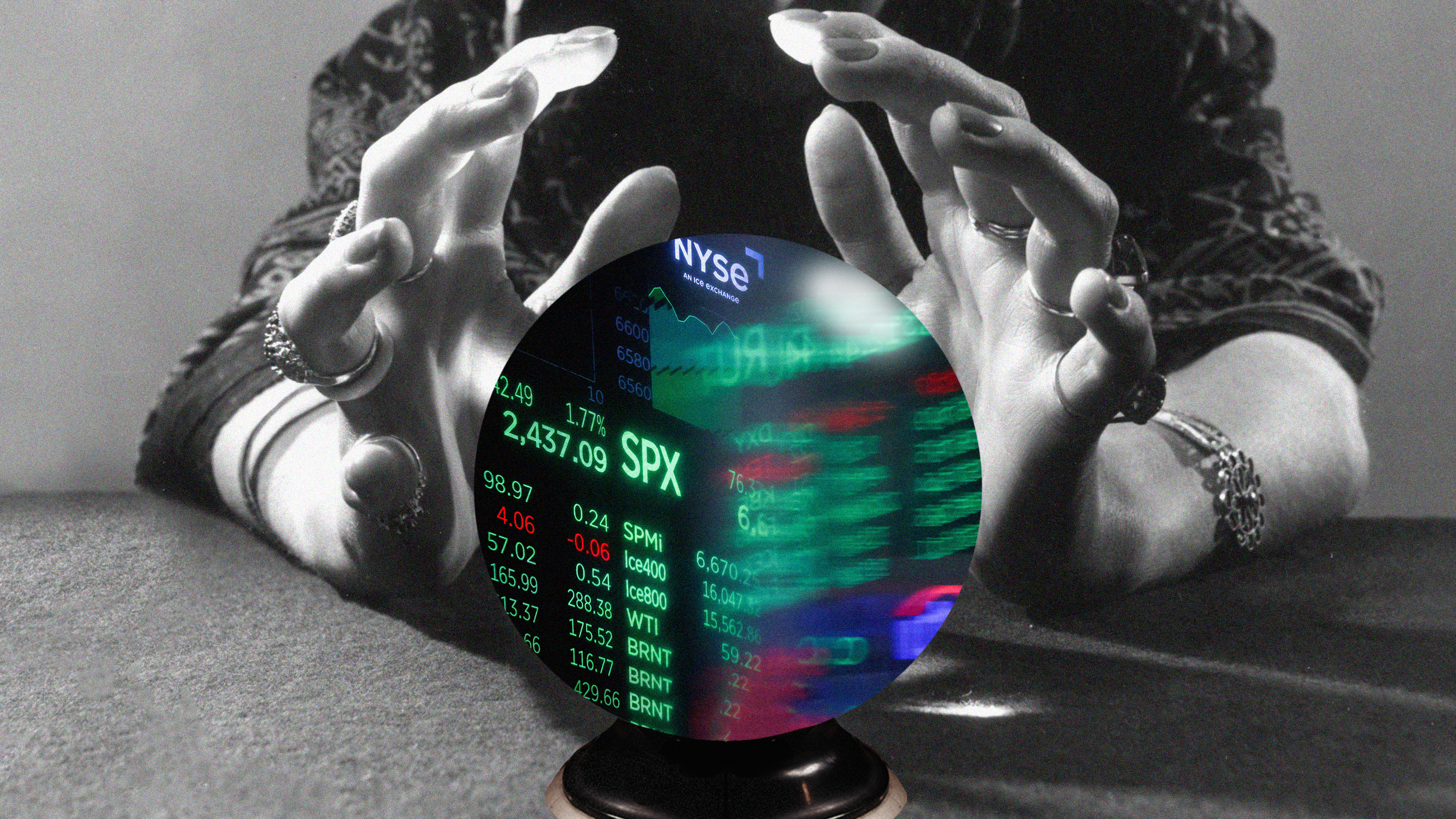
Select the newsletters you’d like to receive. Then, add your email to sign up.
You are now subscribed
Your newsletter sign-up was successful
Want to add more newsletters?

Delivered daily
Marie Claire Daily
Get exclusive access to fashion and beauty trends, hot-off-the-press celebrity news, and more.

Sent weekly on Saturday
Marie Claire Self Checkout
Exclusive access to expert shopping and styling advice from Nikki Ogunnaike, Marie Claire's editor-in-chief.

Once a week
Maire Claire Face Forward
Insider tips and recommendations for skin, hair, makeup, nails and more from Hannah Baxter, Marie Claire's beauty director.

Once a week
Livingetc
Your shortcut to the now and the next in contemporary home decoration, from designing a fashion-forward kitchen to decoding color schemes, and the latest interiors trends.

Delivered Daily
Homes & Gardens
The ultimate interior design resource from the world's leading experts - discover inspiring decorating ideas, color scheming know-how, garden inspiration and shopping expertise.
As a young hedge fund analyst working on Wall Street, HeyJune Jeon always sensed she had an edge. Her job was to crunch numbers, track markets, and advise on trades. But what set her apart, she says, wasn’t what she could see in her spreadsheets—it’s what she could feel. “I just knew who would call me that day. I knew which client would reach out. I knew where the market would move,” Jeon says, on a call in October “And every single time, my gut was right.”
Still, no amount of perfect forecasts could fix the burnout that came with the hedge fund life. In 2017, hoping for a reset, she left for a tech startup. But even then, she felt something was missing. That’s when she met Frank Andrews, New York’s legendary “Psychic to the Stars,” who often sat outside his Lower East Side apartment with his dog, just a few blocks from her office. Intrigued, Jeon began reading with him—until one day he suggested she learn the craft herself. “He doesn’t take on too many students,” she says. “I was like, okay, why not?”
That private curiosity eventually developed into a full-blown side hustle when Jeon’s peers in finance and tech began asking her for financial readings at happy hours and client dinners. “I was already in the right environment, and I had the street cred, because I was already working with people who just so happened to know that, ‘Hey, she’s a good analyst from a financial analyst perspective, but she also happens to be a reader,’” Jeon says. “I had gotten so many names under my belt just doing readings for free that I had a waitlist.”
When the pandemic hit, Jeon started posting tarot and astrology videos on TikTok, which went viral almost instantly. Then came a 2020 appearance on Fox Business, where she was interviewed about her financial readings live on air. “It felt like a calling,” she says. “So I made the decision to be like, you know what? Let me just quit my job and go full-time with this.”
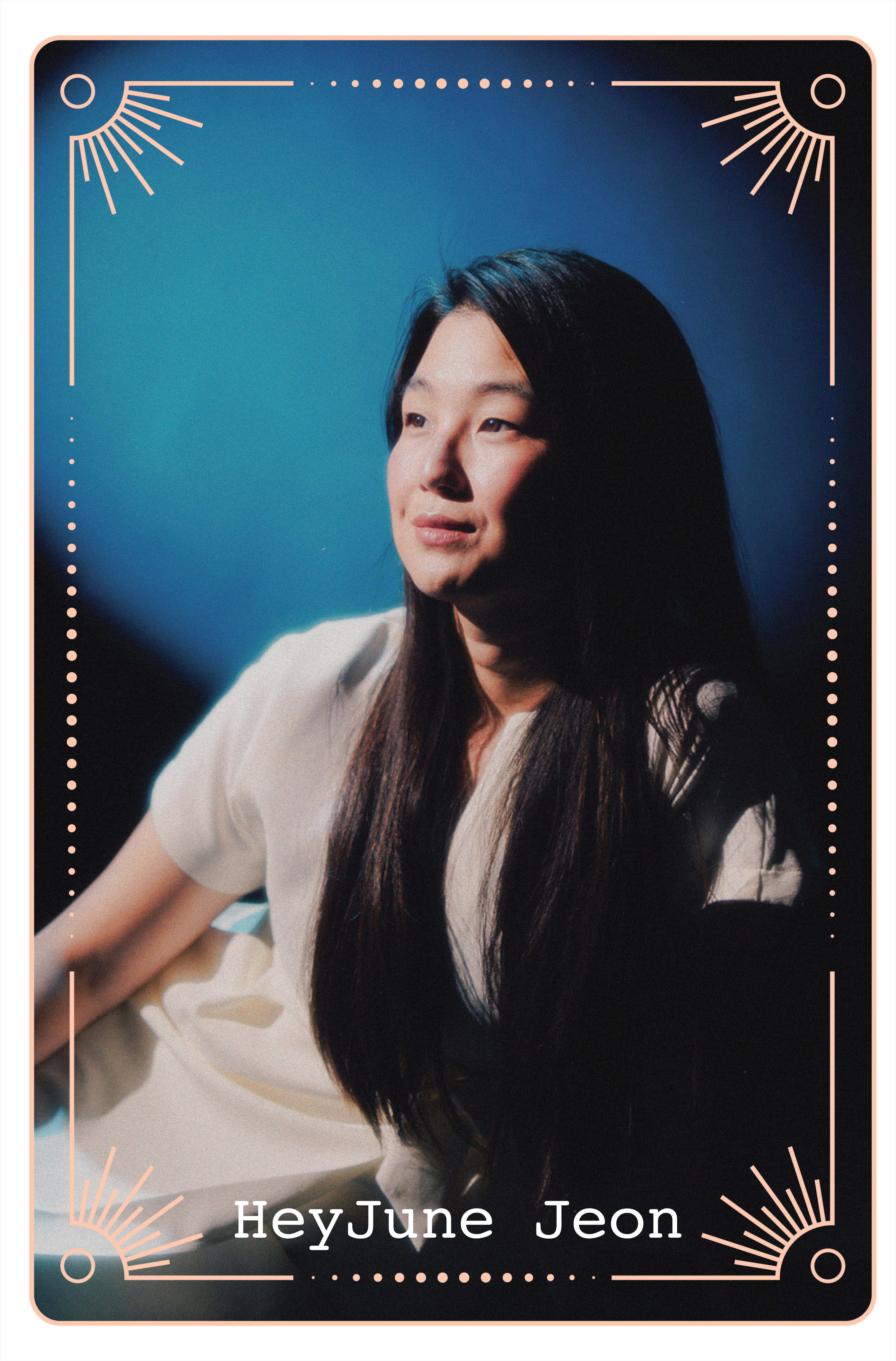
HeyJune Jeon
Today, 35-year-old Jeon runs Pheydrus, working with a team of specialists in astrology, feng shui, and numerology to diagnose clients’ energetic and financial blind spots. With more than a million followers on social media, her roster runs the gamut from traders and VC investors to women trying to reach the C-suite, paying anywhere from a few hundred dollars for a single reading to $10,000 for a full program. One seven-week course provides “assignments, live coaching, and personalized workshops” to help entrepreneurs.
Jeon isn’t an anomaly so much as a signal of a broader cultural shift: the merging of money and mysticism. A 2024 survey found that eight in 10 Gen Z and millennial Americans believe in cosmic guidance, including when it comes to their careers and finances.
Across social media, women like Jeon are part of a fast-growing cottage industry of “money mystics.” On WitchTok, hashtags like #manifestation and #moneyspells have amassed billions of views, turning tarot cards and natal charts into financial planning. Their accounts traffic in the parlance of “vibrations” and “consciousness,” and offer a supernova of options, including monthly memberships, coaching programs, and astrological consultations for traders, investors, and those seeking unorthodox financial advice for unorthodox economic times.
Get exclusive access to fashion and beauty trends, hot-off-the-press celebrity news, and more.
For Jessie-Susannah Karnatz, otherwise known as the Money Witch, that disillusionment became a business plan. The 44-year-old built her San Francisco–based practice after what she calls a “tower card” moment: a divorce, an eviction, and a financial collapse that forced her to rebuild from scratch.
“I had become intrigued by why it's not just the financial literacy gap,” she says. “When you give people the information they need to have the financial habits that are going to support them in their financial goals, why do they still not do it?” Drawing on her experience running small businesses and doing bookkeeping and tax work, she began to merge those practical skills with her growing spiritual awareness.
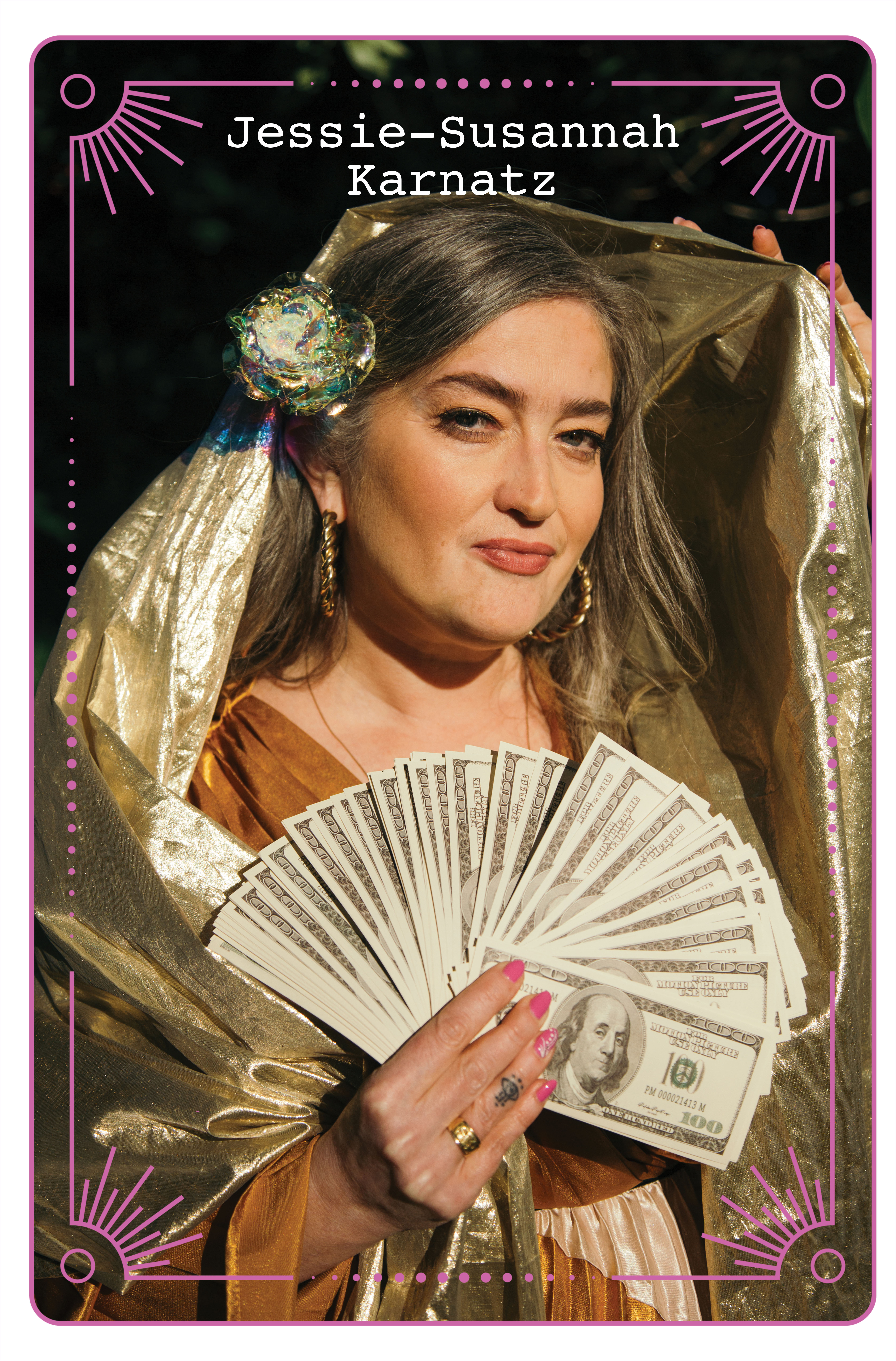
Jessie-Susannah Karnatz
Now over a decade later, Karnatz’s practice blends traditional financial services with psychic guidance. A typical two-hour session with a new client begins with a simple question: “When I first sit down with someone, I just say, ‘What can I do for you?’” she says. From there, she uses what she calls a mix of “psychic capacity and technical financial knowledge” to start pulling apart “what is working and not working.” She asks about “family history around money”—how they were raised and what beliefs they inherited—then studies their astrological chart, using their birth details to trace those patterns.
Karnatz describes her intuitive process as “clear knowing,” explaining, “I rely heavily on my intuition, my psychicness, to help people understand what their real problems are with money,” Karnatz explains. “It’s not so different from what you might uncover in a therapy journey.”
On the low end, Karnatz offers a membership group, Money Coven, for $99 a month. It’s community centered, with daily discussion threads and five guided sessions a month where members can budget together or join group workshops led by Karnatz and other guest facilitators. For those who want something more intensive (and have the cash), there’s a one-on-one coaching program that costs $5,000 for three months, which includes bi-weekly meetings with Karnatz and WhatsApp support between sessions.
Christine Lewis Czyska, a self-employed business owner, turned to the Money Witch after nearly a decade of overwork, burnout, and financial whiplash. “I was looking for someone I could be honest with about my financial journey,” she says. “It’s been trial by fire.” After years of cycling through over-spending and debt, she wanted to understand the emotional patterns behind her habits. In their first session, Karnatz told her that “my financial life may be one of the places where I don’t have the same emotional maturity as other parts of my life”—a moment Czyska describes as “a light bulb.” She’s still early in the process but says she finally feels “supported and witnessed without judgment.”
When the world feels chaotic and frightening, people want to feel a personal sense of power. And astrology, when it’s utilized in a healthy way, gives you that.
It’s the kind of conversations you’re not going to have with a traditional financial planner, who can advise you on how much to save for retirement, but not why you can’t seem to stick to the plan. For many of Karnatz’s clients, especially women, that emotional excavation is the missing piece in a system built around patriarchal ideas of money as purely mathematical.
Karnatz sees the surge in financial mysticism as part of a broader reckoning with the stories Americans have long been told about money. She points out that many younger people have followed the traditional playbook: they get degrees, work hard, and do everything they’re told would lead to stability. Yet they still find themselves without job security, unable to afford a home, and “potentially six figures in student debt that the government does not care about.” She adds, “You’re having your existential crisis, and then you start seeking answers. That’s what mysticism, magic, religion all do: they meaning-make.”
It’s no coincidence that most of Karnatz’s clients are women and nonbinary people—groups that have always had to fight harder for financial footing. Women, for instance, hold just 12 percent of global portfolio-management roles, control roughly a third of retail financial assets in the U.S. and Europe, and still earn only about 80 cents for every dollar men make in the U.S.
On a gray Friday afternoon in October, I join one of Jeon’s final sessions with a client over Zoom. The woman on screen —a veteran entrepreneur who’s built and sold companies, survived boardroom betrayals, and is now trying to rebuild both her business and her confidence—has asked to remain anonymous to speak candidly about her career, financial decisions, and business relationships. Soft-spoken and visibly drained, she admits she’s “very exhausted” after years in a toxic partnership and is now facing another pivotal decision: whether to invest millions in a new venture.
Over the next hour, Jeon toggles effortlessly between mystic and strategist, pulling cards, referencing planetary transits, and offering grounded business counsel. She reads the client’s chart like a roadmap, noting that Pluto is “going through your first house,” a transit she says marks deep transformation and personal reckoning. She explains that a “second Saturn return” is pushing one potential partner toward “a fresh start in her career.” Then she draws another card: “I got the retirement card,” she tells the client, explaining that it suggests a turning point in the next six months: either the sense of having earned enough and being ready to slow down, or reaching a new milestone that brings real closure.
You’re having your existential crisis, and then you start seeking answers. That’s what mysticism, magic, religion all do: they meaning-make.
But her guidance isn’t only celestial. A self-described “Reflector” in human design terms (a system that blends astrology, chakras, and astronomy), Jeon sees part of her role as mirroring her clients’ energy back to them. Jeon gently reminds the client, “Your value is not tied to whether or not you can just dish out 10 million. I hope you recognize that.” By the end of the session, the shift is visible: the client sits taller, sketching out how she might re-approach her plans with newfound clarity.
That same blend of intuition and strategy is what ultimately led Jeon to this work. After years of watching both Wall Street and wellness culture miss the mark, she began to see a gap she could fill. “We’re all in an energetic enmeshment with these things around us,” she says, but traditional finance doesn’t account for the “unseen forces” that shape people’s relationships to money. Mainstream manifestation culture, on the other hand, can feel too vague to be useful. “‘Just think positive’?” Jeon says. “Well, if you have a very traumatic childhood or you come from a third world country, that just doesn’t work.”
Jeon views her approach as more of an evolution of traditional finance than a rejection of it. She’s quick to point out that Wall Street traders, too, will “think the market’s going this way, and then find evidence to support their gut. They’ll never admit that, but that’s how a lot of analysts operate.” She’s just made the process explicit and systematic. Her clients, many of them high-achieving women in business and tech, “want details, they want facts. They don’t like the generic,” she says. “Because of my experience, I can tangibly tell them: they want this percentage, this sort of leverage points or multiplier… that's something that other readers can't really go into as much because they can't really come up with the specifics of what to say. That's industry language.”
Following the rules didn’t really help. So we’ve got to create and follow our own magic.
It’s a method that’s earned her a loyal following and more than a few success stories. Jeon says she has advised a founder to turn down a $20 million offer that later became $50 million, helped a YouTuber pivot into stand-up comedy and start touring internationally, and even nudged the creators of the viral Big Red Boots, MSCHF, to take the leap that landed them on Jimmy Fallon’s late night show. “Her guidance completely changed how I show up—personally, professionally, spiritually,” Manjari Kalia, a nurse practitioner who built her own concierge-care business, shares over an email. At the time, she was “floating through pandemic healthcare—doing the work but not really connected to who I was becoming.” Through Jeon’s courses, she began realigning her business with what she calls her “path of greatest purpose.”
The process wasn’t easy: “It was a lot of deep inner work—slogging through the mud, shedding old patterns, redefining what success looked like.” But the results, she says, were tangible. “Clients and independent clinicians who were in alignment with me started finding me naturally. Referrals increased, and the mission of the company expanded.”
Talk to a traditional financial expert and they have a different read. Many caution that while there is always a certain amount of risk when it comes to investing and making money, there are still safeguards in place. A licensed fiduciary is legally bound to act in your best interest. A mystic, by contrast, might be a leap of faith, especially since there are no certifications or qualifications to calling yourself one.
It might work as an addition to regular financial check-ins, but it should not replace those fundamental practices of financial wellness.
“If astrology or spirituality gives you an accessible entry point into something you might otherwise avoid, like your finances, great,” says Stefanie O’Connell, the author of The Ambition Penalty: How Corporate Culture Tells Women to Step Up — And Then Pushes Them Down. “If it helps you live, spend, save, and invest in better alignment with your values, great.”
The danger, she warns, is mistaking self-reflection for strategy. Manifesting can’t replace budgeting, and a moon cycle won’t rebalance your portfolio. “It might work as an addition to regular financial check-ins,” she says, “but it should not replace those fundamental practices of financial wellness.”
Natalia Benson, a Los Angeles–based astrologer and money coach, has leaned fully into that philosophy. After years of living paycheck to paycheck, she began merging her longtime spiritual practice with practical money management in 2018, teaching clients to read their birth charts as personal finance tools. She’s since built a six-figure business around that balance.
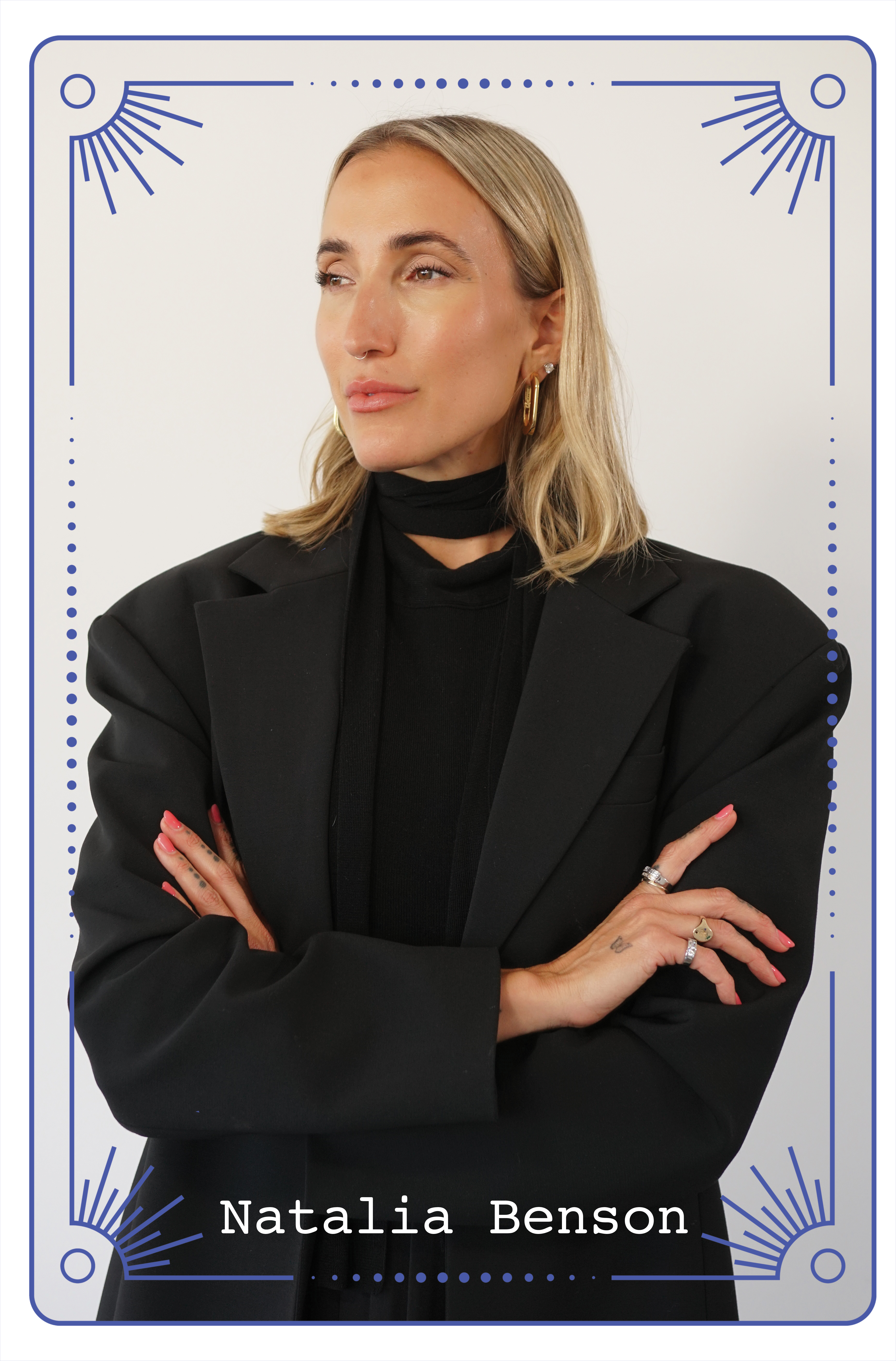
Natalia Benson
“When the world feels chaotic and frightening, people want to feel a personal sense of power,” she says. “And astrology, when it’s utilized in a healthy way, gives you that.” Through her membership program, Magical Women & Money, Benson helps clients map their “money blueprints,” studying placements like Venus, Jupiter, and Saturn to identify their values, purpose, and earning potential. Her clients are often “empathetic, sensitive, or creative people”—those who find traditional financial advice too “left-brain,” she says.
Still, she emphasizes that astrology alone isn’t the answer. “It can help you understand yourself,” she says, “but you also need sound, healthy financial practices.” That blend of intuition and structure, she adds, can “give you a sense of empowerment, and a sense of self knowing and connection that can help you weather challenging times in the world.”
Across the spectrum, each woman’s method points to the same idea: that understanding your money might start with understanding yourself. And according to them, that philosophy has transformed their own finances, too.
Jeon credits intuition for helping her sell stocks ahead of market crashes, time her exit from Wall Street, and buy two homes using her own numerology method. Karnatz rebuilt from divorce and eviction as a single mother, growing her business into a growing, self-sustaining practice by confronting her own “shadows around money.” And Benson, who once had “fifty bucks in my bank account,” says that when she finally started to “show money that I respected it and I was willing to take care of it and not be so avoidant,” everything shifted.
Jeon, for one, has stopped apologizing for it. “Following the rules didn’t really help,” she says. “So we’ve got to create and follow our own magic.” After all, fortune favors the bold. And betting on yourself? That’s just good business.
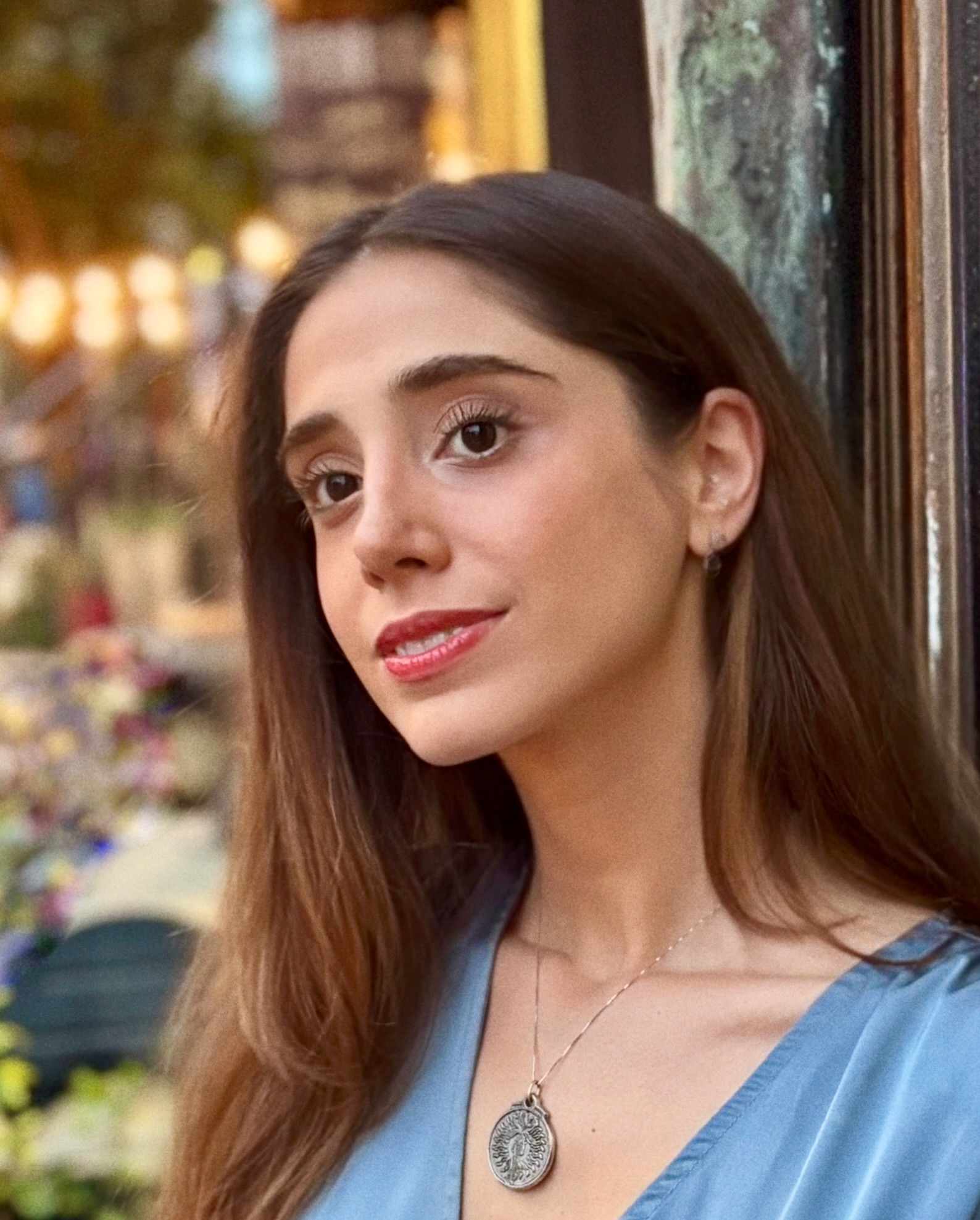
Noor Ibrahim is the deputy editor at Marie Claire, where she commissions, edits, and writes features across politics, career, and money in all their modern forms. She’s always on the hunt for bold, unexpected stories about the power structures that shape women’s lives—and the audacious ways they push back. Previously, Noor was the managing editor at The Daily Beast, where she helped steer the newsroom’s signature mix of scoops, features, and breaking news. Her reporting has appeared in The Guardian, TIME, and Foreign Policy, among other outlets. She holds a master’s degree from Columbia Journalism School.
